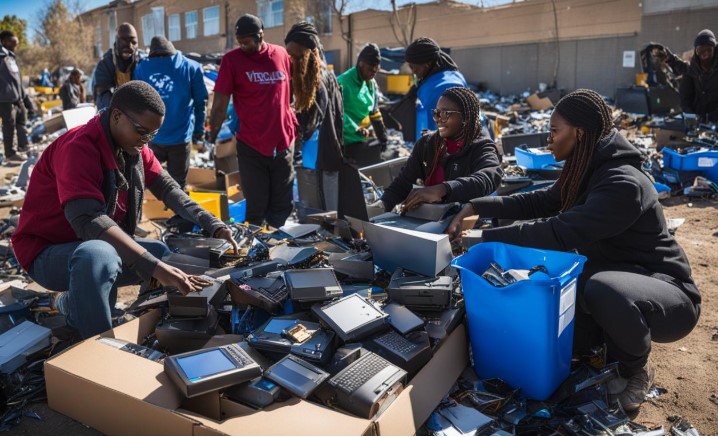The Role of Community Programs in Recycling Awareness
Community programs play a vital role in raising recycling awareness. These programs educate people, encourage participation, and create positive environmental impacts. By engaging local communities, these initiatives help spread knowledge about recycling and its importance. In this article, we will explore how community programs shape recycling habits and drive environmental change.

Educating the Public on Recycling Benefits
Community programs educate people about the benefits of recycling. Many individuals do not fully understand how recycling helps the environment. Through workshops, events, and educational campaigns, community programs teach the importance of reducing waste and conserving resources.
These programs often highlight how recycling reduces energy consumption and lowers carbon emissions. They explain that recycling keeps materials out of landfills, preventing pollution and the release of greenhouse gases. By making these benefits clear, community programs motivate residents to recycle more.
By offering simple, easy-to-understand information, community programs make recycling accessible to all. They help remove confusion and encourage people to take action.
Encouraging Participation in Recycling Programs
Community programs are key to increasing participation in local recycling programs. They provide clear guidelines and instructions on how to recycle properly. Many people may not recycle because they are unsure about what can and cannot be recycled. Through outreach and local campaigns, community programs clarify these rules.
Programs often partner with local businesses, schools, and organizations to spread the message. They organize recycling drives and collection events to make recycling more convenient. By offering accessible drop-off points, they encourage more people to participate.
Local governments also use these programs to provide residents with recycling bins and materials. This makes it easier for people to start recycling in their homes, thus increasing recycling rates. Community programs bridge the gap between awareness and action by motivating individuals to recycle.
Reducing Waste Through Community Efforts
Community recycling programs help reduce waste in the local area. By offering recycling options, they reduce the amount of trash that ends up in landfills. With more people recycling, less waste is sent to waste disposal sites.
Some programs also promote composting, a process that reduces organic waste. Composting creates nutrient-rich soil while reducing the volume of waste that needs to be managed. This helps to further decrease landfill waste and environmental pollution.
In addition to traditional recycling, community programs also encourage upcycling and reusing items. Many initiatives focus on repurposing old materials, which reduces the need for new resources. These efforts help local communities move toward more sustainable waste management practices.
Promoting the Circular Economy
Community programs play a critical role in promoting a circular economy. In a circular economy, materials are continually reused, and waste is minimized. Community recycling programs help close the loop by encouraging the recycling of everyday materials such as paper, plastic, and metal.
These programs also raise awareness about sustainable consumption. By encouraging people to buy less and recycle more, they help create demand for recycled goods. This shift supports the idea of reusing resources instead of continually extracting new ones. Through education and involvement, community programs promote the values of a circular economy and help communities move toward sustainability.
Building a Sustainable Future
Community programs build a foundation for a sustainable future. They inspire individuals to take responsibility for their environmental impact. By fostering a culture of recycling, these programs create long-term change. The more people understand the importance of recycling, the more they participate in these programs.
As recycling habits take root in communities, local environments become cleaner, healthier, and more sustainable. By working together, people can reduce waste, conserve resources, and lessen the impact on the planet. Community recycling programs play an essential role in this process.
Conclusion
Community programs are crucial in raising recycling awareness and encouraging action. They educate the public, promote participation, reduce waste, and support the circular economy. Through these efforts, communities can create lasting environmental change. By getting involved in local recycling programs, individuals help build a more sustainable future for everyone. As these programs grow, so will the positive impact on the planet.




Appliance Repair Manual
Hi, Neat post. There is a problem with your site in internet explorer, would check this?IE still is the market leader and a good portion of people will miss your great writing because of this problem.
Best Fitness Tips
Thank you for your articles. They are very helpful to me. May I ask you a question? http://www.ifashionstyles.com